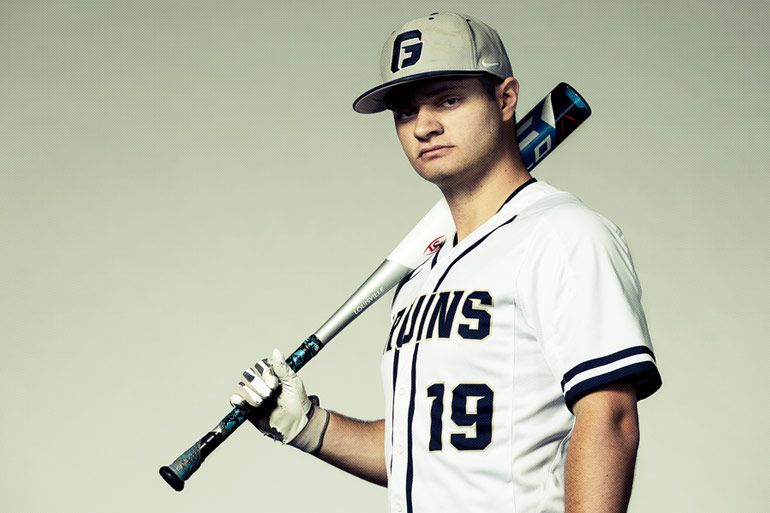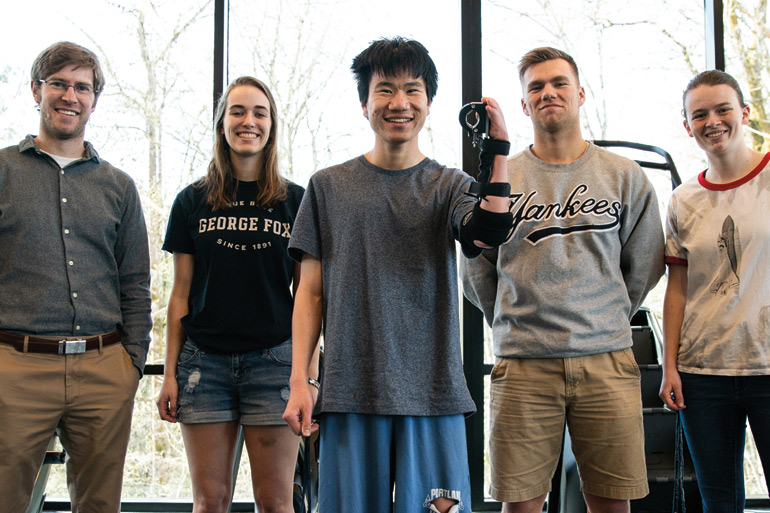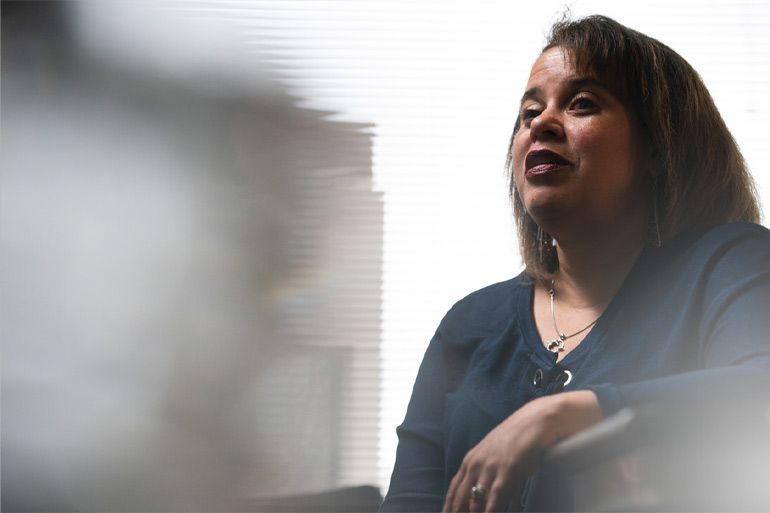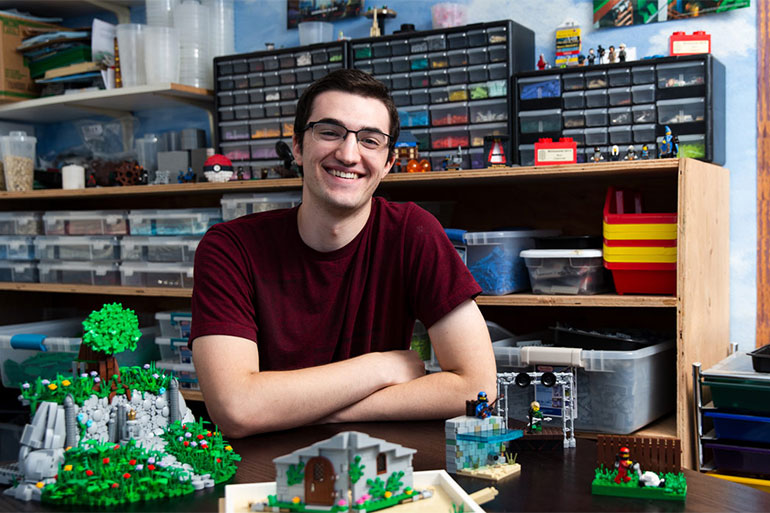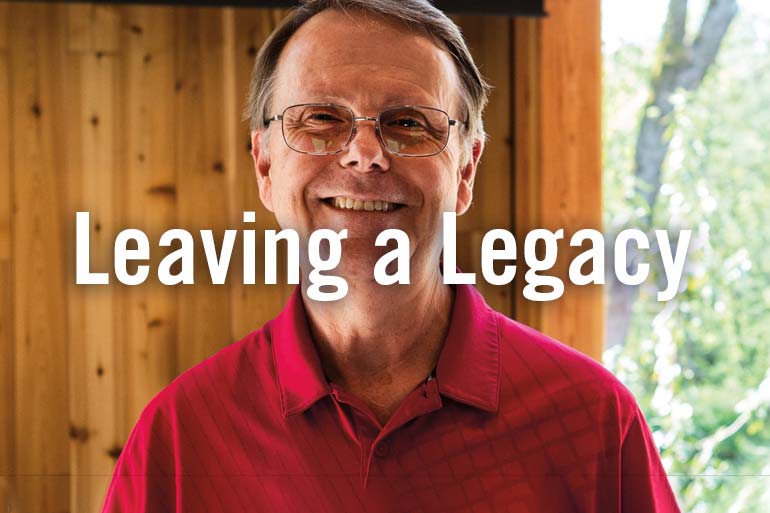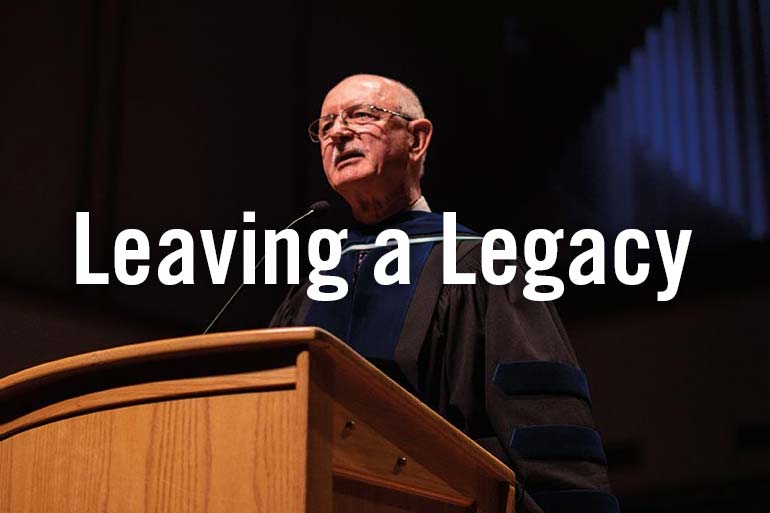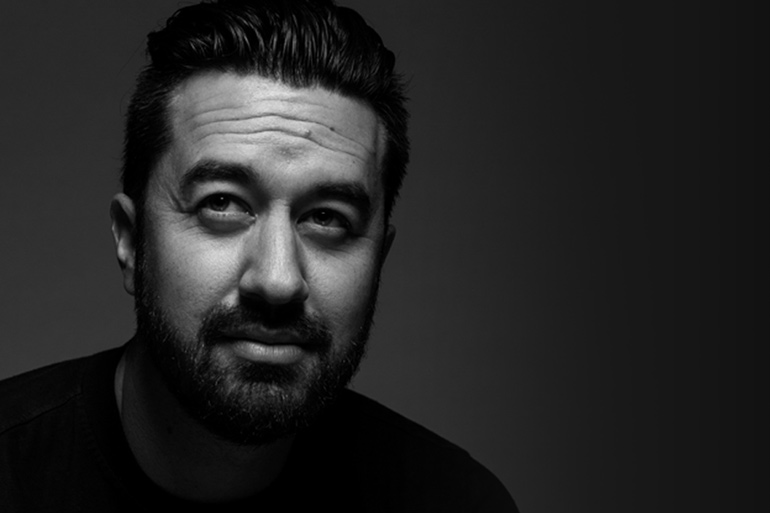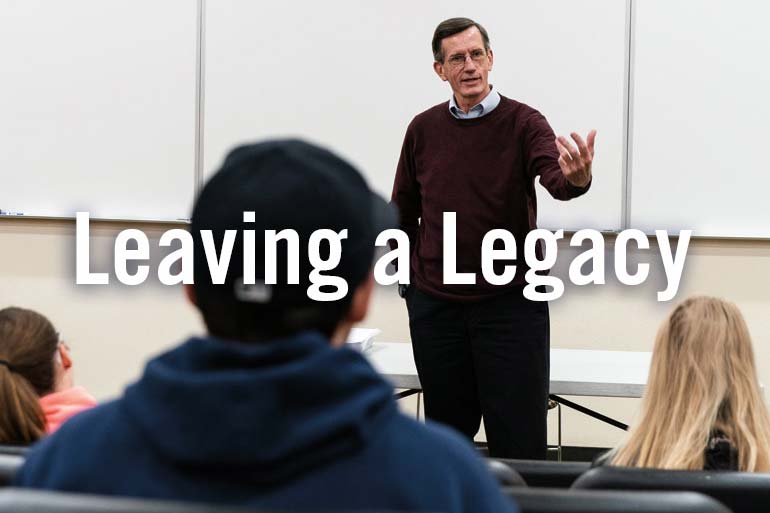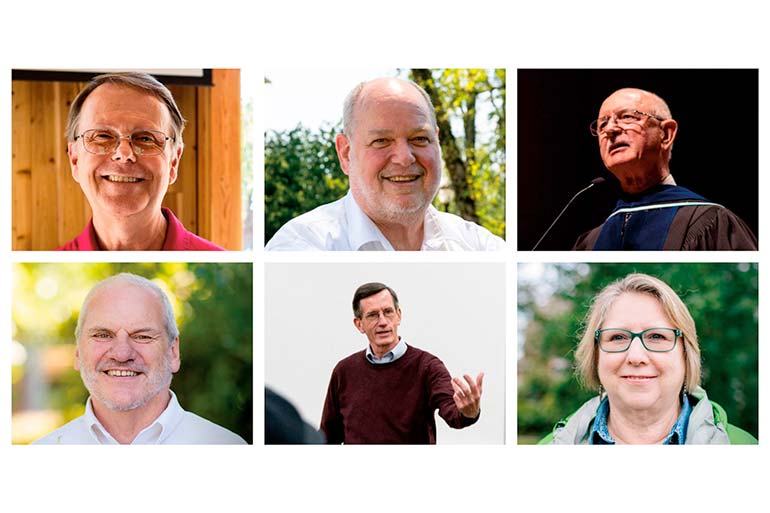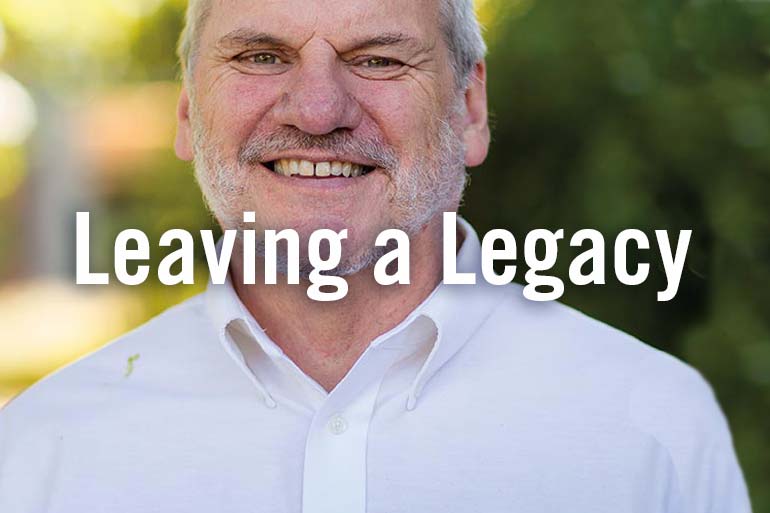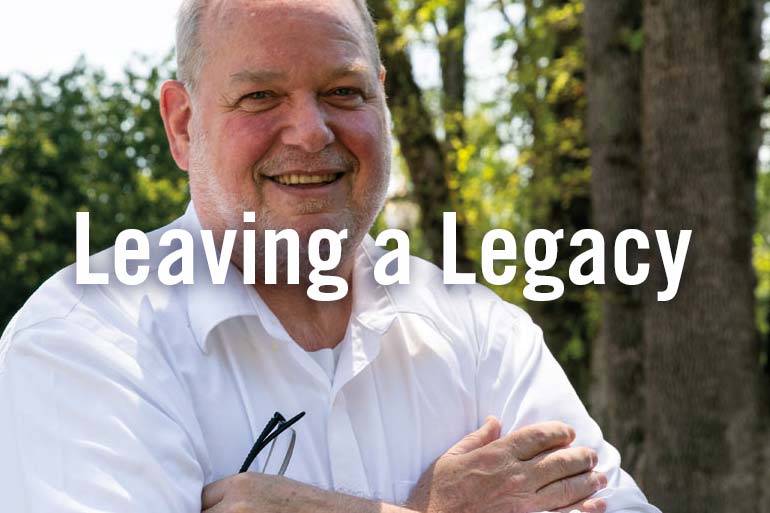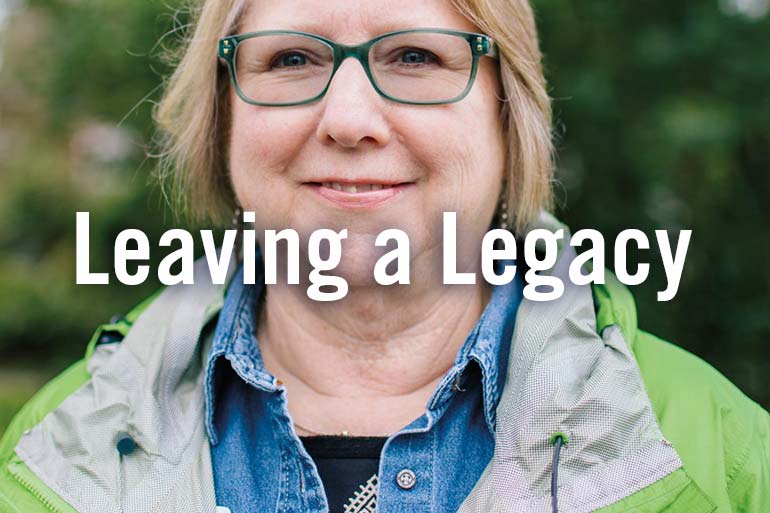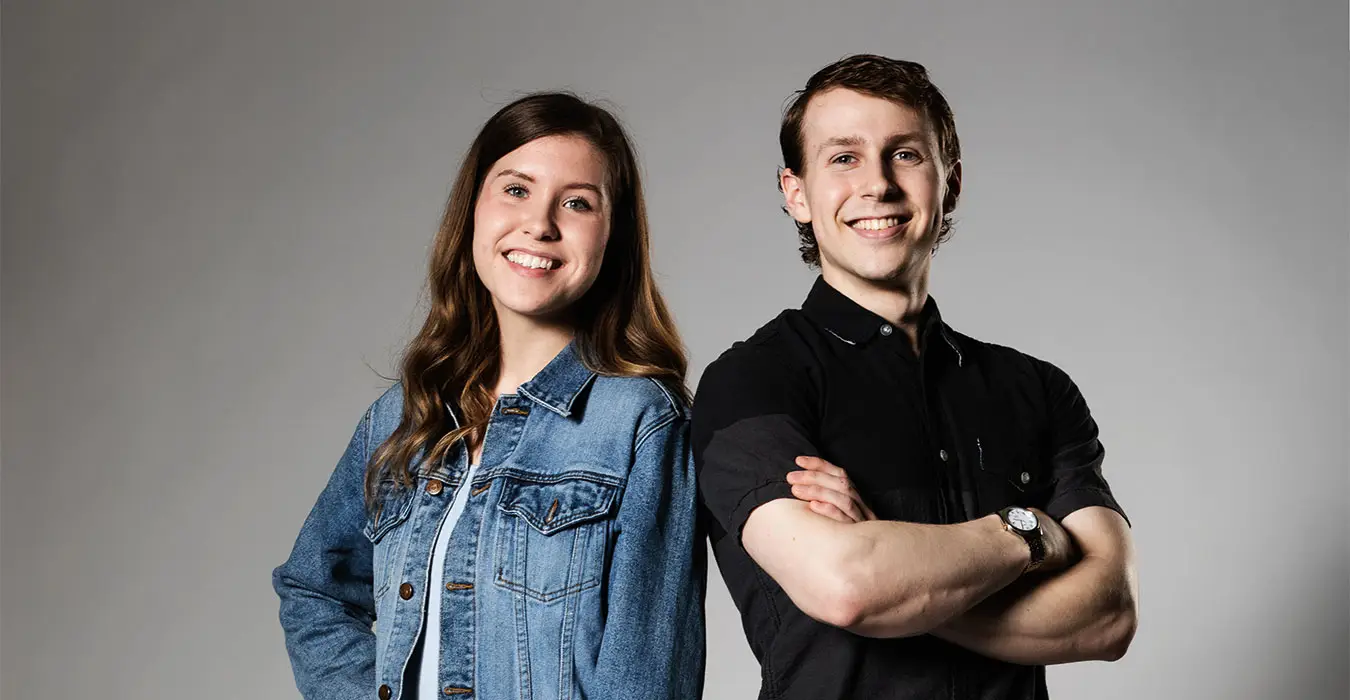
And Then it All Changed
Cancer opened a new world of questions for Delana Lincoln and Rylan Schubkegel. They don’t have answers – but they have hope.
By Kimberly Felton
“Hodgkin’s Lymphoma, stage 4.”
Rylan Schubkegel, 18 at the time, saw the moisture gather in his mom’s eyes – but this mom of two young-adult, active, healthy (healthy, right?) boys maintained control. He saw the grief on his dad’s face, the shock on his brother’s face, and turned to the doctor.
“OK, so what’s next?” the teen asked. What he thought was a pulled muscle led to a week of tests and scans at Seattle Children’s Hospital. Blood work, a urine sample and X-rays on the first day suggested a malignancy. By the end of the first week, CT and PET scans and a bone marrow aspiration pointed to Hodgkin’s Lymphoma. A week later, the biopsy confirmed the doctor’s guess.
“I was the one who was gritting my teeth and saying, ‘All right. I’ve got treatment, all this stuff, ahead of me, but it’s not going to get in the way of my life,’” Schubkegel recalls. What he really wanted to know was, “Can I go climbing tomorrow?”
Later, he would understand the hellish journey of battling cancer. But in this moment, the roller hockey athlete just wanted to get it done.
Delana Lincoln found out she had cancer the day she was cured. In her upside-down story, infections led to tests, then scans, then – three months into her journey – surgery to remove a mass in her bladder. After two agonizing weeks of no news, the doctor told her she had a malignant tumor in her bladder – a cancer that typically shows up in 80-year-old people, not teenagers. The surgery removed it. “It’s gone, and it should never come back,” the doctor said. No radiation. No chemo. No hair loss. Done.
Following the morning appointment, Lincoln asked her mom to drop her off at school. “It’s just a normal day. I’m fine,” she thought. Spotting her boyfriend and best friends between classes, she joined them – and started sobbing.
“I felt like I was out of my body and was like, ‘I’m not sure why I’m upset. I don’t know what’s going on,’” she recalls. Suspended between celebration and grief, grappling with her near miss, she called her mom to take her home. “There was no reason that I should’ve had this. I was like, ‘This feels like I need to be celebrating, but I don’t know how to celebrate it.’”
Life Will Never Be the Same
Lincoln had just begun her senior year of high school when the infections started. Leadership meetings gave way to doctor appointments. But she didn’t talk about it. She just wanted life to be normal – and there was nothing normal about a girl who hates needles enduring an IV, lying still for a CT scan, wondering what they would find. Without making the conscious decision, she ignored this precarious part of her life as much as possible. Enough people knew; the family had support. Yet a number of friends at school had no idea.
“Cancer isn’t the reason I have faith, but it has strengthened the faith I already had.”
But there was no ignoring Schubkegel’s attack against cancer that began at the end of high school. Chemo and radiation kept him from his job at the grocery store and gave him a new bald, brave look. The hair was easier to lose than losing a year of college. He was accepted into the William Penn Honors Program at George Fox, where his brother was entering his junior year. But college would have to wait, because retching out his guts would not.
Still, Schubkegel made use of his forced year off. He missed a summer of work but went back to his job at the grocery store when he could. He published songs on iTunes, developed a small business selling greeting cards and programmed his own computer game. And he went into remission.
“Recurrence,” as it turns out, is a dirty word.
Five months after ending his bout with cancer, the cancer was back for another round. It’s harder the second time, when you know what’s coming. Harder to remain certain of your path when college is delayed again.
“To me, George Fox symbolized hope,” Schubkegel says. “I planned on pouring my heart and soul into the mental and spiritual education I would receive. Fox is where I committed myself to pursue my dreams. … It became synonymous with my hope for the future.”
The second treatment – hitting back hard at the aggressive disease – was difficult.
“The more medical trials I had to endure, the longer I had to postpone my education. I became more despondent,” Schubkegel recalls. “Did God not want me to attend Fox? Did he not care about my passions and dreams?” Questions like these swirled about in his mind as the chemo coursed through his body.
In the midst of this second battle, the university joined the fight. The honors program stipulates entrance only in the fall. But the program director made adjustments to allow a late entrance, sent the extensive reading list to Schubkegel, and told him to be ready to join discussions on campus in January.
“My family and peers … helped assure me that my dreams were within God’s plan,” Schubkegel says. “I became wholly convinced when George Fox gave me the opportunity to join the honors program during the second semester. This strengthened my resolve, allowing me to endure the suffering while rejoicing in hope.”
Schubkegel moved into campus housing in January of 2019 and finished his second round of treatment a month later. The most recent scan was clear. “The doctors say there is no cancerous activity in my body, but that’s also what they said after treatment in 2017,” he says. “Medically, the odds are in my favor. However, my confidence in my health has been somewhat uprooted.”
Even Lincoln, who is told a recurrence is unlikely, has released her hold on certainty. “If it was random the first time, and not supposed to happen to me, why won’t it happen again?” she asks. “Sometimes I get into this questioning mode and I tell myself, ‘Stop. Give it to God. He knows the whole story.’ He literally knows the whole story.”
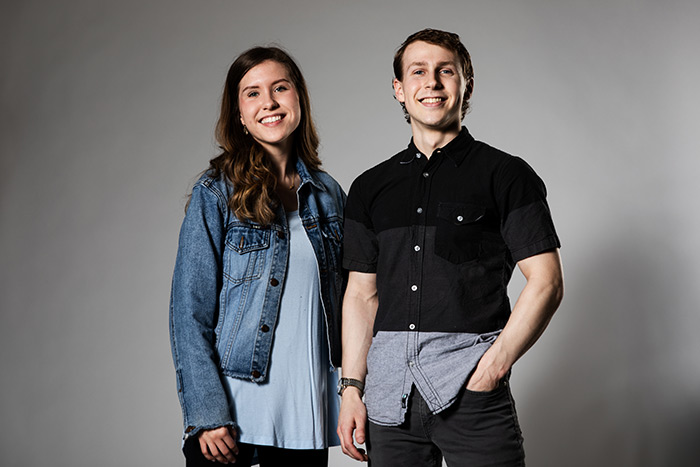
Finding the Good in the Bad
Safely within her identity of a normal freshman at George Fox University last fall, Lincoln decided to share that story – at least what she knows so far. “George Fox is all about being known,” she says. “That’s their thing. How freeing is it to know that people know you and they know you well, and they know your story?
“I prayed about it, and a year after the day of my surgery I made an Instagram post with an ugly selfie I took in the hospital … and I literally shared the whole story. The responses I got were awesome. They’re like, ‘This is awesome. You were able to do so much still, but also be going through this. This is so inspirational.’
“This is why I wanted to share this, for people to be inspired by it.”
As the student who arrived mid-program at college due to cancer treatment, Schubkegel couldn’t hide his story. “I might be known as that kid who had cancer,” he says, “but … it allows for this vulnerability between people; it allows you to connect on a much deeper level and suffer with people.”
Lincoln, a social work major, and Schubkegel, a computer science major, find themselves more aware and thankful for the good things – large and small – than perhaps they used to be. Their friendship, for example, would not have happened outside of this shared journey.
Yet they are careful to say that the good does not justify the bad. They are deeply grateful for the good, while refusing to tie up their stories with a pretty bow.
“The way I look at it,” Schubkegel says, “… for a Christian, there’s something very powerful and significant about suffering. It doesn’t matter if … that suffering will bring about some tangible good in this world – that really isn’t the point of suffering.
“But I do think in suffering … you are actually suffering with Christ in whatever you’re going through. That understanding has shed a whole new light on what I’ve gone through and what may come in the future. … Cancer isn’t the reason I have faith, but it has strengthened the faith I already had.”
The victory against hopelessness, Schubkegel says, is more important than his victory against cancer. “It has prepared me to endure whatever suffering God allows in my life, and always to rejoice in the hope while enduring the suffering.”
“I came to a place of ‘not everything happens for a reason, but God works … good out of all the things that happen,’” Lincoln says. “I can’t see that good right now, and I don’t know how long it’ll be until I can see the good, but there is going to be good because we are promised that. That’s when I finally felt comfortable sharing my story, because … if God is promising that this story is going to have good, let’s tell the whole world.”
Featured Stories
Bruin Notes
- University Explores Healthcare Partnership in Southern Oregon
- Alumni Plaza Celebrates Legacy of Bruins Past and Present
- The Class of 2019 moves on to new careers and grad school
- Faculty Members Honored as Top Teachers, Researchers for 2018-19
- New Facility Focus: Hadlock Student Center
- Community Mourns Loss of Longtime Supporter Ken Austin
- In Print
- Recent Recognition
- New Residence Hall on Track for Fall 2019 Completion
- Sports Spotlight
- Teaching Theology in the Age of Netflix
- University Recognized for Value, Innovation in Latest U.S. News Rankings
Alumni Connections
- Tolon Pursues Her Passion for Law
- Life Events
- George Fox Grads Find Community and a Mission Through Socially Conscious Fashion
- News, by Graduating Year
- Rodriguez Recognized as 2018 Oregon Elementary School Principal of the Year
- René Makes Big Impact as a Big Brother
- Minthorne Leaves Legacy of Leadership, Generosity
- Send Us Your News



